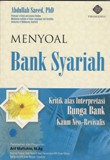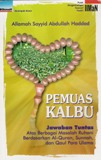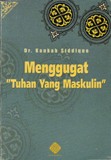Conclusion: Transculturation and the Making of the Global
The Asian values debate occurred more than a decade ago. It was a story of the raising liberal democracy (with its capitalistic economy) after conquering its long rival Communism. Its rise as a candidate of single ideology poses a challenge to the rest of the world as it expanded beyond its geographical border. For the East, the once victim of Western colonialism and not fully recovering from its past, the West once again presents as a looming threat. Haunted by its past, the East’s respond to this challenge were various, from rejecting the liberal-democratic-capitalistic West to accepting it.
We also noticed that the debate over Asian values occurred within Asia itself. While it is true that the arguments for the Asian values were mainly addressed to the West as an answer to its looming ideological domination; it was debated among communitarian-conservative Asians and liberal-progressive Asians who demanded change and found the liberal-democracy in the West as a momentum endorsing them to fight against the establishment. Their debate clearly involved their political, economic, and academic positions. Most political elites were in a defensive position relative to their threatened political position in the case their country embraced liberal-democracy. The oppressed civil movement activists, on the other hand, support liberal-democracy because it takes their side. It might remind us to one of Said’s points that ideas cannot seriously be understood or studied without their force, or their configurations of power, also being studied.[27] The idea of Asian values is not an exception.
The debate is a locus to study transculturation as well. If we look at parts of Asia today, the process of transculturation involving the Asian values debate a decade ago continues to shape the region. Unlike what Fukuyama theorized, liberal democracy has not yet become the single winning ideology in Asia. It is also not the case that the clash of civilization colorizes Asia’s relation to the rest of the world. Some parts of Asia are liberalized, but some are not. Indonesia, South Korea, and Taiwan, apart the sui generic Japan, are on the march to liberal democracy. Singapore, Malaysia, the Philippines, and Thailand, are struggling with their threatened democracy. Other parts of Southeast Asia are still under non-democratic regimes. Needles to say, China, the biggest stake holder of Asia, is the most interesting case for transculturation. It is the place where capitalism was absorbed within its changing socialism and democracy is experimented in the village level.[28]
This map of Asia is just another face of the once debated Asian values in its current expressions. No debate anymore, but Asians are working in adapting the “foreign” ideas to their own use. Altogether, these colorful Asian faces (from democratic to authoritarian) is inseparable part of what we conceive as the global, and not a terra incognita in the global map where the Global will eventually conquers it.
***
---------------------------------------------------------------------
[1] http://www.unhchr.ch/html/menu5/wcbangk.htm
[2] More on this concept see Mary Louis Pratt, Imperial Eyes: Travel Writing and Transculturation, London and New York: Routledge, 1991, p. 6
[3] Ho Wing Meng, Asian Values and Modernisation – a critical interpretation, Singapore: Department of Philosophy, University of Singapore, 1976.
[4] Ibid., p. 11.
[5] F. S. C. Northrop, Asian Mentality and United States Foreign Policy, Annals of the American Academy of Political and Social Science, Vol. 276, Lessons from Asia.(Jul., 1951), p. 126
[6] For an analisys on its impact to the East Asia soon after the Summit, see C. P. Fitzgerald, “East Asia after Bandung”, Far Eastern Survey, Vol. 24, No. 8. (Aug., 1955), pp. 113-119.
[7] Edward Said, Orientalism, New York: Vintage Books, 1994, p.1
[8] Ibid., p. 322.
[9] Francis Fukuyama, The end of History and the Last Man, New York: Free Press; Toronto: Maxwell Macmillan Canada, 1992, p.xi.
[10] Ibid., pp. 42-43.
[11] http://web.archive.org/web/20050307102714/http://www.freedomhouse.org/reports/century.html#table1
[12] http://www.freedomhouse.org/template.cfm?page=20&year=2006
[13] Francis Fukuyama, The end of History and the Last Man, p. 46
[14] Samuel P. Huntington, “The clash of civilizations?”, Foreign Affairs Vol. 72, No. 3, Summer, 1993, p. 22.
[15] Francis Fukuyama, “the Illusion of Exceptionalism”, Journal of Democracy, Vol. 8, No. 3 (1997), p. 148.
[16] From The Economist, 27 April 1994, p. 5, as quoted by Kenneth Cristie and Denny Roy (eds), The Politics of Human Rights in East Asia, London: Pluto Press, 2001, p. 1.
[17] Ibid.
[18] Mahathir Mohamad, the Asian Values Debate, Kuala Lumpur: the Institute of Strategic and International Studies, 1997, p. 9.
[19] Ibid., p. 11.
[20] As quoted by Bilahari Kausian, “The Asian Values Debate: A View from Singapore”, in Larry Diamond and Marc F. Plattner (eds.), Democracy in East Asia, Baltimore: The John Hopkins University Press, 1998, p. 20.
[21] See Margaret, Ng, “Why Asia Needs Democracy: A view from Hong Kong” in Larry Diamond and Marc F. Plattner (eds.), Democracy in East Asia, pp. 1-16.
[22] As quoted by David Kelly, “Freedom as an Asian value”, in Michael Jacobsen and Ole Bruun (eds.), Human Rights and Asian Values: Contesting National Identities and Cultural Representations in Asia, Richmond, Surrey: Curzon, 2000, p. 182.
[23] Ibid., p. 8.
[24] The online version is available at http://law.hku.hk/lawgovtsociety/Bangkok%20Declaration.htm
[25] p. 4
[26] As quoted in Daniel A. Bell et al (eds.), Toward Illiberal Democracy, New York: St. Martin’s Press, 1995, p. 163.
[27] Edward Said, Orientalism, p. 5.
[28] http://news.bbc.co.uk/2/hi/asia-pacific/4319954.stm
thematic category
Wednesday, March 7, 2007
The Making of the Global: The Case of Asian Values Debate (3)
Posted by Arif Maftuhin at 7:39 PM
Subscribe to:
Post Comments (Atom)










0 comments:
Post a Comment